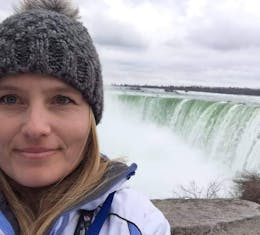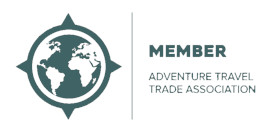Canada Tours
Stunning scenery including The Rockies and beautiful Lakes, see nature at its best
Popular tours
- Save16%
 View Tour
View TourCanadian Rockies: National Parks Eastbound - 14 Days
- Vancouver to Calgary
- Age group: 18 - 39
- Max group size: 12
Was:£2,099From£1,766  View Tour
View TourCaribou - Discover the Best of the Rockies - 8 Days
- Vancouver to Vancouver
- Age group: 18 - 80
- Max group size: 24
From£1,553- Save1%
 View Tour
View TourCanadian Rockies Express - 8 Days
- Calgary to Vancouver
- Age group: 12 - 100
- Max group size: 12
Was:£2,079From£2,058 - Save16%
 View Tour
View TourCanadian Rockies: National Parks Westbound - 14 Days
- Calgary to Vancouver
- Age group: 18 - 39
- Max group size: 12
Was:£1,999From£1,682 - Save16%
 View Tour
View TourActive West Coast Canada Discovery - 8 Days
- Vancouver to Vancouver
- Age group: 12 - 100
- Max group size: 11
Was:£1,739From£1,463 - Save16%
 View Tour
View TourVancouver Island & Northern Rockies - 11 Days
- Vancouver to Calgary
- Age group: 12 - 100
- Max group size: 12
Was:£3,379From£2,843
Canada Tours
Welcome to Canada, a land of diverse landscapes, vibrant cities, and friendly people. With its vast wilderness, sparkling lakes, soaring mountains, and rich cultural heritage, Canada is an ideal destination for travellers seeking adventure, natural beauty, and cultural experiences.
For nature enthusiasts, Canada's national parks offer some of the most spectacular scenery in the world. From the towering peaks of Banff and Jasper National Parks in the Canadian Rockies to the rugged coastline of Gros Morne National Park in Newfoundland and Labrador, there are endless opportunities to explore the great outdoors. Visitors can hike, bike, ski, or paddle their way through pristine wilderness areas, and spot a wide variety of wildlife, from grizzly bears to moose to whales.
For those seeking cultural experiences, Canada's cities offer a wealth of museums, galleries, and historical sites. Toronto, Montreal, and Vancouver are among the most vibrant and cosmopolitan cities in North America, with world-class dining, shopping, and entertainment options. Visitors can explore the historic streets of Old Quebec City, experience the multiculturalism of Toronto's Kensington Market, or take in the stunning views from Vancouver's Capilano Suspension Bridge.
Foodies will also find plenty to love in Canada, which is known for its fresh seafood, farm-to-table cuisine, and multicultural culinary traditions. From lobster boils in Nova Scotia to poutine in Quebec to sushi in Vancouver, Canada offers a delicious and diverse range of dining options.
In addition to its natural beauty and cultural attractions, Canada is also known for its friendly and welcoming people. With a reputation for politeness and hospitality, Canadians are eager to share their country's beauty and culture with visitors from around the world.
Whether you're seeking adventure, relaxation, or cultural experiences, Canada is a destination that should be on every traveler's bucket list. So pack your bags, get ready to explore, and discover all that Canada has to offer!
When is the best time to visit Canada?
The best time to visit Canada depends on your interests, preferences, and what you want to see and do during your trip. Canada is a vast country with diverse landscapes and weather patterns, so the optimal time to visit can vary depending on the region you plan to explore.
Here is a general guide to the best time to visit Canada based on the season:
Summer (June-August): This is the peak tourist season in Canada, especially in popular destinations such as Banff, Vancouver, and Toronto. The weather is warm and sunny, and many outdoor activities such as hiking, camping, and water sports are available. However, this is also the busiest and most expensive time of year, so expect larger crowds and higher prices.
Autumn / Fall (September-November): Fall is a beautiful time to visit Canada, especially if you want to see the vibrant colors of the changing leaves. The crowds start to thin out, and the weather is still pleasant in many areas. Fall is also a great time for wildlife viewing, as many animals prepare for the winter months.
Winter (December-February): Canada is known for its long and cold winters, but this season can also be a great time to visit, especially if you enjoy winter sports such as skiing, snowboarding, and ice skating. Popular winter destinations include Whistler, Banff, and Quebec City. Winter is also a great time to see the northern lights in places like Yukon and the Northwest Territories.
Spring (March-May): Spring can be a beautiful time to visit Canada, especially as the snow starts to melt and the flowers begin to bloom. This is a great time for outdoor activities such as hiking and cycling, and it's also a good time to visit some of the country's top attractions before the summer crowds arrive.
Ultimately, the best time to visit Canada depends on your personal preferences and what you want to see and do during your trip. It's always a good idea to research the weather patterns and seasonal events in the specific region you plan to visit and plan accordingly.
What are the main attractions and places to visit?
Canada is a vast and diverse country with countless attractions and places to visit. Here are some of the most popular destinations and attractions in Canada:
Banff National Park: Located in the Canadian Rockies in Alberta, Banff National Park is known for its breathtaking mountain scenery, turquoise lakes, and abundant wildlife. It's a popular destination for hiking, skiing, and outdoor adventure.
Niagara Falls: One of the most famous natural wonders in the world, Niagara Falls is located on the border of Ontario and New York State and attracts millions of visitors each year. Visitors can take a boat tour to get up close to the falls, or explore the surrounding area, which includes vineyards, wineries, and historical sites.
Old Quebec City: Located in the province of Quebec, Old Quebec City is a UNESCO World Heritage site and one of the oldest cities in North America. Visitors can explore the cobblestone streets, historic buildings, and charming cafes and restaurants.
Vancouver: Located on the west coast of Canada, Vancouver is a vibrant city known for its beautiful parks, beaches, and cultural attractions. Highlights include Stanley Park, Granville Island, and the Capilano Suspension Bridge.
Toronto: Canada's largest city, Toronto is a cosmopolitan hub of culture, food, and entertainment. Visitors can explore the iconic CN Tower, take a stroll through the Distillery District, or visit the Royal Ontario Museum.
Ottawa: Canada's capital city, Ottawa is known for its stunning architecture, beautiful parks, and cultural attractions. Highlights include the Parliament Buildings, the Rideau Canal, and the National Gallery of Canada.
Prince Edward Island: Located on the east coast of Canada, Prince Edward Island is known for its charming small towns, scenic beaches, and delicious seafood. Visitors can explore the historic city of Charlottetown, visit the Anne of Green Gables Museum, or take a scenic drive along the island's coastline.
These are just a few of the many attractions and places to visit in Canada. Whether you're looking for natural beauty, cultural attractions, or outdoor adventure, Canada has something to offer everyone.
Which are the main cities to visit?
Canada has several major cities, each with its own unique culture and attractions. Here are some of the largest and most well-known cities in Canada:
Toronto: Located in Ontario, Toronto is Canada's largest city and financial capital. It is known for its diverse neighborhoods, cultural landmarks, and iconic CN Tower.
Montreal: Located in Quebec, Montreal is known for its rich history, vibrant arts scene, and world-renowned cuisine. It is also home to many festivals, including the Montreal Jazz Festival and the Just for Laughs Comedy Festival.
Vancouver: Located in British Columbia, Vancouver is known for its stunning natural beauty, mild climate, and outdoor activities. It is also a hub for film and television production.
Calgary: Located in Alberta, Calgary is known for its cowboy culture, rodeos, and the famous Calgary Stampede. It is also a hub for oil and gas companies.
Ottawa: Located in Ontario, Ottawa is Canada's capital city and home to many national museums and landmarks, including Parliament Hill and the Canadian Museum of History.
Edmonton: Located in Alberta, Edmonton is known for its vibrant arts scene, festivals, and outdoor recreation opportunities.
Quebec City: Located in Quebec, Quebec City is one of the oldest cities in North America and is known for its charming Old Town, French culture, and historic landmarks, including the Château Frontenac.
These are just a few examples of the major cities in Canada, but there are many other cities and towns across the country that offer their own unique experiences and attractions.
Will I need a Visa to visit Canada?
Whether or not you need a visa to visit Canada depends on your nationality and the purpose of your visit. Here are the general guidelines:
Visa-exempt countries: If you are a citizen of a country that is exempt from the requirement of obtaining a visitor visa, you can visit Canada for up to six months without a visa. These countries include the United States, most European countries, Australia, and Japan, among others. However, you still need to obtain an Electronic Travel Authorization (eTA) before you travel to Canada by air.
Countries requiring a visitor visa: If you are a citizen of a country that is not exempt from the requirement of obtaining a visitor visa, you need to apply for a Temporary Resident Visa (TRV) before you can travel to Canada. The application process involves submitting your passport, a completed application form, and other supporting documents to the Canadian visa office in your country. You may also need to attend an interview or provide biometric information as part of the application process.
Other types of visas: If you are traveling to Canada for a specific purpose such as work, study, or to join a family member who is already in Canada, you may need to apply for a different type of visa. These include work permits, study permits, and family sponsorship visas, among others. The application process and requirements for these visas can vary, so it's important to consult the Canadian government website or contact the nearest Canadian embassy or consulate for more information.
It's important to note that the visa application process can take several weeks or even months, so it's best to apply well in advance of your intended travel date. You should also make sure that you meet all the requirements for entry into Canada, including having a valid passport and any necessary travel documents.
As always we recommend checking the latest country entry requirements with your national foreign travel office, for UK citizens this is the Foreign Travel Advice section of www.gov.co.uk, please click here to view to Canada page.
Holidays To The Rockies
The Canadian Rockies are a popular destination for travelers from around the world, and it's easy to see why. With its stunning natural beauty, diverse wildlife, and endless opportunities for outdoor adventure, the Canadian Rockies offer a truly unforgettable holiday experience.
When planning a trip to the Canadian Rockies, there are a few things to keep in mind. First, it's important to decide when to visit. The peak season is typically from June to September, when the weather is warm and many of the outdoor attractions are open. However, this is also the busiest time of year, so if you prefer a quieter experience, consider visiting in the shoulder season, which runs from April to May and September to October.
Next, you'll want to decide where to stay. There are several towns and cities throughout the Canadian Rockies, each with its own unique charm and attractions. Banff is one of the most popular destinations, with its charming downtown area, hot springs, and close proximity to some of the most iconic natural landmarks in the area, such as Lake Louise and Moraine Lake. Jasper, located to the north, is another popular destination, known for its rugged wilderness and opportunities for outdoor adventure.
Once you've decided where to stay, it's time to start planning your itinerary. One of the most popular activities in the Canadian Rockies is hiking, and there are trails for all skill levels, from easy strolls to challenging multi-day hikes. The scenery is simply breathtaking, with snow-capped mountains, crystal-clear lakes, and dense forests as far as the eye can see.
In addition to hiking, there are plenty of other outdoor activities to enjoy in the Canadian Rockies. You can go white-water rafting, horseback riding, mountain biking, and even take a helicopter tour to see the scenery from above. Wildlife viewing is also a popular activity, with the chance to spot grizzly bears, moose, elk, and more.
For those who prefer a more leisurely pace, there are plenty of sightseeing opportunities as well. Take a scenic drive along the Icefields Parkway, a 232 km stretch of highway that connects Banff and Jasper, and marvel at the stunning views of glaciers, waterfalls, and towering peaks. You can also visit the many museums and cultural attractions in the area, such as the Whyte Museum of the Canadian Rockies in Banff or the Jasper-Yellowhead Museum and Archives in Jasper.
In terms of accommodations, there are options for every budget and preference, from luxury hotels and resorts to cozy cabins and campgrounds. Many of the hotels and lodges offer stunning views of the surrounding mountains and lakes, and some even have their own hot springs.
In summary, a holiday to the Canadian Rockies is an experience like no other. From the awe-inspiring natural beauty to the endless opportunities for outdoor adventure, there is truly something for everyone. Whether you prefer a fast-paced itinerary filled with hiking and wildlife viewing or a more relaxed schedule of sightseeing and leisure activities, the Canadian Rockies are sure to leave a lasting impression.
What wildlife might I see in the Rockies?
The Canadian Rockies are home to a diverse array of wildlife, including:
Grizzly Bears: The Canadian Rockies are one of the few remaining places in the world where you can still see grizzly bears in their natural habitat. These magnificent animals are most commonly spotted in the spring and fall, as they emerge from hibernation or forage for food before winter.
Black Bears: Black bears are also common in the Canadian Rockies and can be seen throughout the year. They are generally less aggressive than grizzly bears but should still be treated with caution and respect.
Moose: Moose are the largest member of the deer family and are often seen near lakes and rivers in the Canadian Rockies. They are most active in the early morning and late afternoon.
Elk: Elk are another common sight in the Canadian Rockies, particularly in the fall when they mate and bugle to attract mates. They are often seen grazing in open fields or near roadsides.
Bighorn Sheep: Bighorn sheep are native to the Canadian Rockies and are known for their impressive horns and ability to navigate steep mountain terrain. They are often seen grazing on grasses and shrubs along the side of the road.
Mountain Goats: Mountain goats are adapted to living in rocky, mountainous terrain and are often seen in the higher elevations of the Canadian Rockies. They have distinctive white coats and are known for their impressive climbing abilities.
Wolves: Wolves are a rare sight in the Canadian Rockies, but if you're lucky, you may spot one. They are most active at dawn and dusk and are known for their distinctive howling.
It's important to remember that these are all wild animals and should be treated with respect and caution. If you encounter wildlife while in the Canadian Rockies, keep a safe distance and never approach or feed them.
Money & costs in Canada
The currency of Canada is the Canadian dollar (CAD). As of May 2023, the exchange rate is approximately 1 CAD to 0.81 USD.
The amount of money you will need for your trip to Canada depends on various factors such as the length of your stay, your itinerary, your accommodation choices, and your spending habits. However, here are some general estimates of the cost of things in Canada:
Coffee: A regular cup of coffee from a cafe or restaurant usually costs around $2.50 to $3.50 CAD.
Beer: A pint of beer in a bar or pub can range from $6 to $10 CAD, depending on the location and brand.
Meals: A basic meal at a fast food chain or food court usually costs around $10 to $15 CAD, while a mid-range restaurant meal can cost between $20 to $40 CAD per person.
Accommodation: The cost of accommodation in Canada varies widely depending on the location, type of accommodation, and the time of year. Hostels and budget hotels usually start at around $30 to $50 CAD per night, while mid-range hotels and vacation rentals can cost anywhere from $100 to $300 CAD per night.
It's a good idea to do some research on the cost of living in the specific region you plan to visit and budget accordingly. You should also factor in additional expenses such as transportation, activities, and souvenirs.
As for how much money you should bring, it's recommended to have a mix of cash and credit/debit cards. ATMs are widely available in Canada, and credit cards are accepted at most establishments. However, it's always a good idea to have some cash on hand for small purchases and emergencies.
Is Canada a safe country to visit?
Yes, Canada is generally considered a safe country to visit. It consistently ranks high in global safety indexes, such as the Global Peace Index and the Safe Cities Index. The country has a stable political and economic system, and the crime rate is relatively low.
However, like any destination, Canada has its own unique risks and potential hazards, and travelers should exercise caution and common sense to stay safe. Here are some general safety tips for visitors to Canada:
Be aware of your surroundings: Pay attention to your surroundings and avoid walking alone in dark or isolated areas, particularly at night.
Keep your valuables safe: Keep your money, passport, and other important documents in a secure place, such as a hotel safe. Be mindful of pickpockets and keep a close eye on your belongings in public places.
Follow traffic laws: If you plan to drive in Canada, be sure to follow traffic laws and wear your seatbelt. Driving under the influence of drugs or alcohol is a serious offense in Canada.
Be prepared for the weather: Canada has a wide range of weather conditions, depending on the season and location. Be sure to check the weather forecast and pack appropriate clothing and gear for your trip.
Respect local culture and customs: Canada is a diverse country with many different cultures and customs. Be respectful of local traditions and beliefs, and avoid any behavior that may be considered offensive or disrespectful.
By following these guidelines and using common sense, you can enjoy a safe and enjoyable trip to Canada.
The emergency number is 911
Do I need any vaccinations to travel to Canada?
As of May 2023, there are no mandatory vaccinations required for visitors to enter Canada. However, it's recommended that travelers are up-to-date on routine vaccinations such as measles, mumps, rubella, tetanus, and influenza.
Additionally, travelers should consult with their healthcare provider to determine if any additional vaccinations are recommended based on their individual health status and travel itinerary. For example, the Public Health Agency of Canada recommends that travelers receive the hepatitis A and B vaccines if they plan to spend extended periods of time in rural areas, work in healthcare or emergency services, or have sexual contact with new partners while in Canada.
What is the food like in Canada?
Canadian cuisine is a reflection of the country's multicultural heritage and vast natural resources. It embraces diverse flavors, regional specialties, and a fusion of culinary traditions. Here's an overview of the food you can expect to find in Canada:
Poutine: This iconic Canadian dish originated in Quebec and has gained popularity across the country. It consists of crispy french fries topped with cheese curds and smothered in rich gravy. Poutine variations often include additional toppings like bacon, pulled pork, or mushrooms.
Maple Syrup: Canada is renowned for its production of high-quality maple syrup. This sweet and flavorful syrup is derived from maple trees and is used to enhance various dishes, such as drizzling it over pancakes, waffles, or desserts.
Seafood: With its vast coastlines, Canada offers an abundance of fresh seafood. Atlantic lobster, salmon, scallops, oysters, and crab are popular choices. You can enjoy them grilled, poached, or in dishes like seafood chowder or fish and chips.
Nanaimo Bars: This classic Canadian dessert originated in Nanaimo, British Columbia. It consists of three layers: a crumbly chocolate and graham cracker base, a creamy custard middle layer, and a smooth chocolate ganache on top. It's a sweet treat loved by locals and visitors alike.
Indigenous Cuisine: Canadian indigenous cuisine offers a unique culinary experience. Traditional ingredients like wild game (such as bison and caribou), foraged ingredients like berries and wild herbs, and preparation methods like smoking and curing are key elements of indigenous cuisine.
Butter Tarts: Butter tarts are a beloved Canadian pastry. They feature a flaky pastry crust filled with a sweet mixture of butter, sugar, and sometimes raisins or pecans. The gooey, caramel-like filling makes them a delectable dessert or snack.
Montreal Bagels: Montreal-style bagels are distinct from their New York counterparts. They are smaller, denser, and sweeter, typically baked in a wood-fired oven. They're often topped with sesame or poppy seeds and are a must-try specialty in Montreal.
Bison: As a lean and flavorful meat, bison is gaining popularity in Canada. It is often featured in hearty dishes like burgers, steaks, and stews, providing a taste of the country's rich culinary heritage.
Craft Beer: Canada has a thriving craft beer scene, with microbreweries and brewpubs scattered throughout the country. You can sample a wide range of beer styles, including lagers, ales, stouts, and IPAs, each with its own unique flavors and characteristics.
These are just a few highlights of Canadian cuisine, which varies from region to region. Each province and territory has its own local specialties and culinary traditions, making Canada a delightful destination for food enthusiasts seeking diverse and delicious flavors.
What can I expect on a tour?
A guided small group tour in both the West and East of Canada offers unique and enriching experiences, showcasing the diverse natural landscapes, vibrant cities, and cultural heritage of these regions. Here's what you can generally expect on such tours:
West Coast Tour:
Breathtaking Nature: Prepare to be awe-inspired by the stunning natural beauty of the Canadian Rockies, including majestic mountain ranges, pristine lakes, and cascading waterfalls. You'll have opportunities for scenic hikes, wildlife spotting, and breathtaking photo opportunities.
National Parks: Visit iconic national parks such as Banff, Jasper, and Yoho, where you can explore serene alpine meadows, walk on ancient glaciers, and soak in natural hot springs. These parks offer a chance to immerse yourself in the untouched wilderness of Canada.
Vibrant Cities: Explore vibrant cities like Vancouver and Victoria, where you can experience a blend of urban charm and natural beauty. Enjoy diverse cuisines, visit local markets, and take in the city's unique cultural offerings.
Indigenous Culture: Gain insights into the rich indigenous heritage of the region through visits to cultural centers, interactions with indigenous communities, and learning about their traditions, art, and history.
East Coast Tour:
Historical Landmarks: Explore the historic cities of Toronto, Quebec City, and Montreal, known for their rich history and architectural wonders. Discover UNESCO World Heritage Sites like Old Quebec, stroll through charming cobblestone streets, and visit iconic landmarks.
Scenic Coastal Beauty: Experience the rugged coastline, picturesque fishing villages, and stunning lighthouses of the Atlantic provinces. Enjoy the mesmerizing landscapes of Prince Edward Island, Cape Breton Island, and the Bay of Fundy, known for having the highest tides in the world.
Culinary Delights: Indulge in the unique culinary offerings of the East Coast, from fresh seafood and lobster feasts to local specialties like poutine and butter tarts. Explore vibrant food markets and immerse yourself in the region's gastronomic traditions.
Cultural Heritage: Discover the cultural diversity of the region through its art, music, and festivals. Learn about the Acadian, Mi'kmaq, and Inuit cultures and witness vibrant performances of traditional music and dance.
Natural Wonders: Experience the breathtaking beauty of national parks like Gros Morne in Newfoundland and Fundy in New Brunswick, where you can hike scenic trails, explore dramatic coastlines, and marvel at unique geological formations.
Throughout both tours, you can expect the convenience and camaraderie of traveling in a small group, led by knowledgeable guides who provide insights, assistance, and ensure a smooth travel experience. Accommodations, transportation, and activities are typically included, allowing you to focus on enjoying the journey and making lasting memories.
Please note that specific itineraries and inclusions may vary based on the tour operator, so it's recommended to review the details of each tour to understand the specific highlights and inclusions for the West and East Coast experiences.
Can I drink the tap water in Canada?
Yes, tap water in Canada is generally safe to drink. The country has stringent regulations and robust water treatment systems to ensure the quality and safety of its tap water. Municipalities are responsible for monitoring and treating the water supply to meet national health standards.
In most cities and towns across Canada, tap water undergoes extensive filtration, disinfection, and testing processes to ensure it meets or exceeds the guidelines set by Health Canada. The water is regularly tested for bacteria, viruses, and chemicals to maintain its quality.
However, it's important to note that there can be slight variations in water quality between different regions or municipalities. In some remote or rural areas, water sources may be from wells or local reservoirs, and additional precautions may be necessary. It's advisable to check with the local authorities or your accommodation provider to get the most up-to-date information about the tap water quality in the specific area you plan to visit.
If you have any concerns or prefer the taste of filtered or bottled water, those options are readily available for purchase in supermarkets, convenience stores, and other retail outlets throughout the country.
In summary, while tap water in Canada is generally safe to drink, it's always a good idea to stay informed about the specific water quality in the area you're visiting and take necessary precautions if needed.
Why visit Canada?
There are many great reasons to visit Canada! Here are just a few:
Natural Beauty: Canada is home to some of the most stunning natural landscapes in the world, including the Rocky Mountains, Niagara Falls, and the Canadian Shield. From pristine lakes to rugged coastlines, there is no shortage of natural beauty to explore.
Multiculturalism: Canada is known for being a welcoming and multicultural country. You can experience a wide range of cultures, cuisines, and languages in cities like Toronto, Montreal, and Vancouver.
Adventure: If you're looking for adventure, Canada has plenty to offer. You can go skiing in Whistler, snowshoeing in Banff, kayaking in the Thousand Islands, or hiking in Gros Morne National Park.
Wildlife: Canada is home to a wide range of wildlife, from grizzly bears and moose to whales and dolphins. You can go on a whale watching tour or visit one of the many national parks to see these animals in their natural habitats.
Friendly People: Canadians are known for being friendly and welcoming to visitors. You'll likely encounter locals who are happy to help you find your way around or give you recommendations for things to do.
Overall, Canada offers a unique blend of natural beauty, multiculturalism, adventure, wildlife, and friendly people that make it a great destination for travellers.
What's the best way to travel to Canada?
There are several ways to get to Canada, depending on your location and travel preferences. Here are some of the most common methods of transportation:
By air: Flying is the most common way to get to Canada, especially if you are coming from a different continent. Canada has several international airports, with the largest ones located in Vancouver, Toronto, and Montreal. Major airlines offer direct flights to these cities from many destinations around the world.
By land: If you are coming from the United States, you can cross the border into Canada by car, bus, or train. There are several border crossings throughout the country, and the process is relatively straightforward, although you will need a valid passport or other travel documents.
By sea: Canada has several major ports, and some cruise lines offer trips to Canadian cities such as Halifax, Quebec City, and Vancouver. This is a great option if you want to combine your trip to Canada with a cruise vacation.
By train: If you are already in Canada, traveling by train is a convenient and scenic option. VIA Rail Canada operates passenger trains that connect major cities throughout the country, with routes that traverse the Canadian Rockies, the Prairies, and the East Coast.
No matter how you choose to get to Canada, it's important to make sure you have the necessary travel documents, including a valid passport and any required visas or permits. You should also check the entry requirements and travel restrictions for your country of origin and for Canada, as these may change depending on the current public health situation and other factors.
Helpful Information
Here are some useful phone numbers and resources for traveling in Canada:
Emergency services: In case of an emergency, dial 911 from any phone in Canada to reach police, fire, or ambulance services.
Visitor information: For general information about traveling in Canada, including attractions, events, and accommodations, visit the official website of Destination Canada at www.destinationcanada.com.
Tourism offices: There are various tourism offices located throughout Canada that provide visitor information, maps, and brochures. You can find a list of tourism offices on the Destination Canada website or by contacting the provincial or territorial tourism board.
Transportation: For information about public transportation options, including bus and train schedules, visit the website of the relevant transit company or contact them directly. For long-distance travel, VIA Rail Canada (1-888-842-7245) and Greyhound (1-800-661-8747) are two popular options.
Accommodation: For information about accommodations, including hotels, motels, and bed and breakfasts, visit the website of a major travel booking site such as Booking.com, Expedia, or Hotels.com.
National parks: Parks Canada (1-888-773-8888) manages Canada's national parks and offers information on park fees, camping, and hiking trails.
Weather: The Government of Canada's weather website, Environment Canada, provides up-to-date information on weather conditions and forecasts for all regions of the country.
These are just a few of the resources available to travelers in Canada. It's always a good idea to do some research and plan ahead to ensure a smooth and enjoyable trip.
Why book with The Adventure People?
Why book with The Adventure People?
You may be thinking ‘why should I book with The Adventure People?’. Here are just some of the reasons we stand out:
The Best Value
Not only are our prices usually the best in the market but our leading service coupled with the financial protections we offer mean you won’t find better value anywhere else.
Your Dedicated Travel Expert
Our travel team is the best in the business and we’re not just saying that. The moment you make an enquiry we’ll pair you with your own dedicated expert who is on hand to answer your questions, look after your booking and make sure you have a fantastic time.
No Waiting Times
We only have one phone number with no automated services. When you contact us you’re straight through to a member of our team and a human!
Financial Protection
We are ATOL certified, members of ABTA and run a Trust account for our packages ensuring you’re fully financially protected.
Flexible Payments
We offer low deposits and monthly payment plans at no extra cost.
Flights
We can add flights to any trip you book with us and we’re happy to help with Round The World tickets!
Accommodation
We work with wonderful accommodation providers and our team can quote almost any hotel in the world at the best prices.
Transfers & Extras
We can easily add airport transfers or extras to any booking. Our team will always quote the best possible price and be able to update your booking.
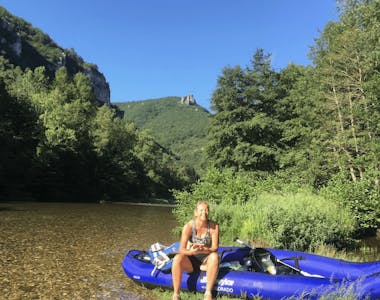

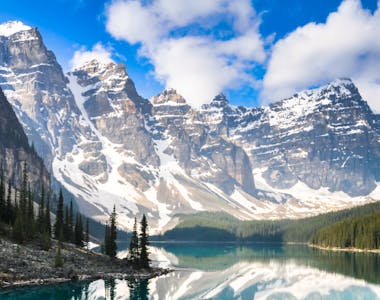
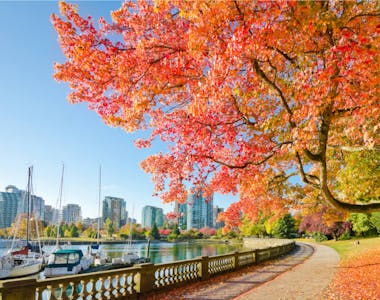
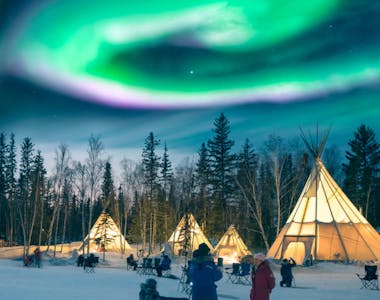
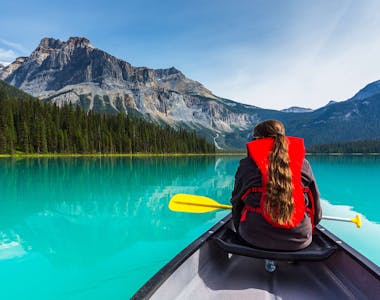
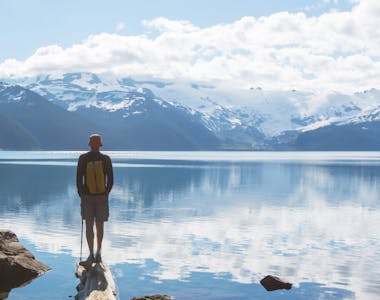
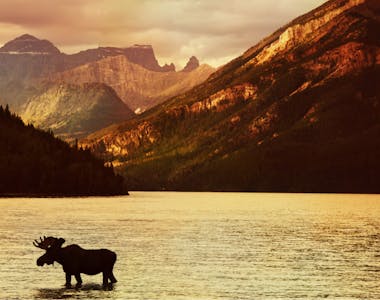
Book With Confidence
Monthly Payments
Spread the costs with no interest or additional fees
Best Price Guarantee
We won't be beaten on price. If you find this adventure at a lower price please get in touch!
Reserve now & pay later
Reserve your adventure today and pay later, free of charge
ATOL protected
Book with confidence
Hold your space today, for free
or book your trip with a deposit and then pay the rest in instalments.
Reserve your flights with us
Add flights to your booking and we'll take care of the rest. You'll get 24/7 support from our team & ATOL protection.
Speak to our experts
Call or email our expert team to find out more and help with ideas and planning.

